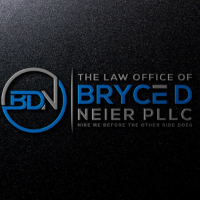Council Juvenile Law Lawyer, North Carolina
Not enough matches for Council Juvenile Law lawyer.
Below are all Council Criminal lawyers.
Don Tolbert Evans
✓ VERIFIEDFirm has 35 years experience, continuing a family tradition of lawyers stretching back 100 years.
Bruce A. Mason
✓ VERIFIEDBruce A. Mason grew up in Fairmont, West Virginia. He graduated magna cum laude from West Virginia University in 1986 with a Bachelor of Science degre... (more)
Andrew R. Dempster
✓ VERIFIEDAndrew R. Dempster Jr. "Drew" is a second generation attorney. Drew grew up in Fayetteville, North Carolina where he graduated from Pine Forest High S... (more)
Bryce D. Neier
✓ VERIFIEDThe Law Office of Bryce D. Neier is based in Fayetteville, North Carolina and I handle a wide range of civil matters. However, the focus of my practic... (more)
FREE CONSULTATION
CONTACT





